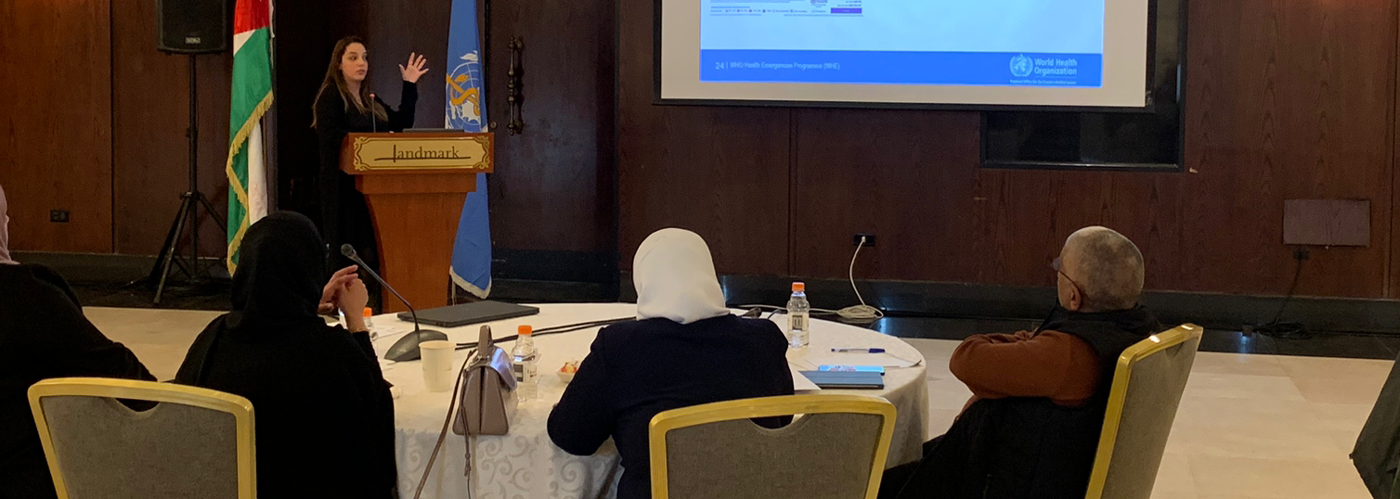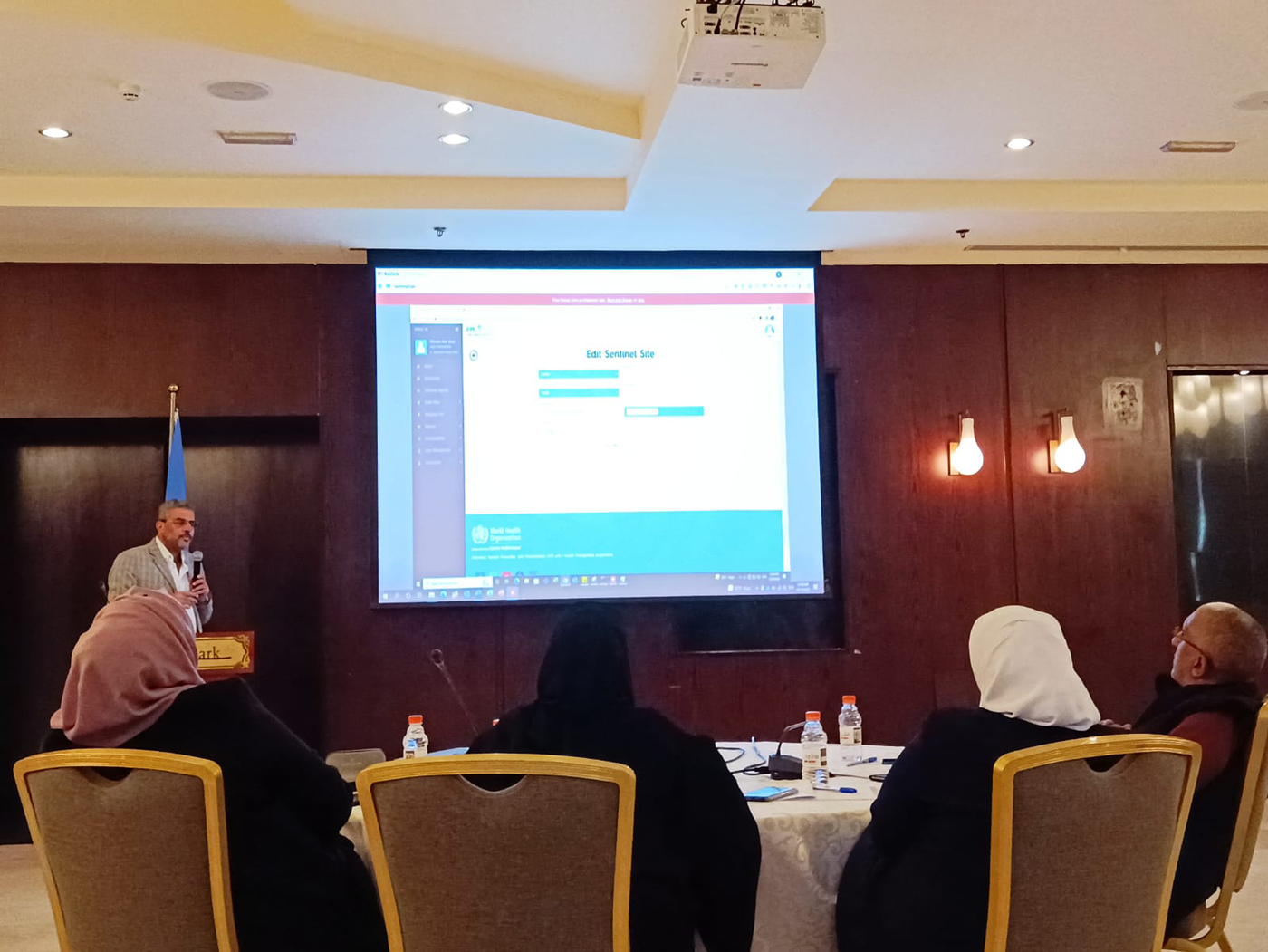 WHO expert explaining the different WHO platforms for reporting data on influenza and other respiratory viruses (Photo: WHO/A. Aman)
WHO expert explaining the different WHO platforms for reporting data on influenza and other respiratory viruses (Photo: WHO/A. Aman)
Jordan, 17 January 2023 – Experts from the Infectious Hazard Prevention and Preparedness (IHP) programme at the WHO Regional Office for the Eastern Mediterranean conducted a mission to Jordan in December 2022 to participate in national training for sentinel site teams and staff of the National Influenza Centre. Participants from sentinel sites, the National Influenza Centre and the Ministry of Health were also trained on using EMFLU-2 to support the transition from paper-based to electronic timely reporting from sentinel sites.
Timely collection, management and data analysis to assist policy-makers in implementing efficient and timely response measures is crucial to outbreak control. However, timely and standardized collection and rapid sharing of epidemiological data from sentinel surveillance systems to WHO have remained a major challenge.
In 2016, the IHP programme established the EMFLU electronic platform designed to collect sentinel data from countries of the Region in a standardized manner, at individual or aggregate levels. An upgraded version of this platform (EMFLU-2) is currently in the process of being rolled out.
During the training, experts provided technical support to the Ministry of Health, highlighting the importance of abiding by the national protocol beginning with case enrolment following WHO standardized case definitions to specimen collection, testing and feedback results.
 WHO expert training the participants on using EMFLU-2 (Photo: WHO/H. Abou-Elnaja)
WHO expert training the participants on using EMFLU-2 (Photo: WHO/H. Abou-Elnaja)
Participants were also trained on how to understand the different types of users, respective roles and accessibility and how to perform data entry in EMFLU-2 (using both the case-based and aggregate forms), understand and comprehend validation rules to ensure high quality of data, navigate dashboards, and produce and publish reports.
By adopting the electronic reporting system, the country can rapidly identify and monitor changes in the current circulating respiratory viruses in individuals at increased risk of severe disease. The system can also assess changes associated with the emergence of different strains with epidemic and pandemic potential.
The timely and standardized collection of epidemiological data at individual level is a key component of influenza sentinel surveillance allowing monitoring of changes in seasonality, epidemiology, and virological characteristics of influenza and other circulating respiratory viruses.
Related links
A joint mission assesses the sentinel surveillance system in Jordan
Strengthening seasonal influenza vaccination programmes and policies in the Region


